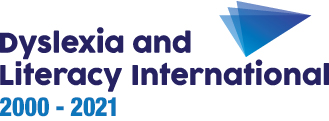Informal assessment by the classroom teacher
Teachers without the appropriate qualifications in educational psychology are not allowed to diagnose dyslexia officially. This said, if you think that a child in your class could be at risk of having dyslexia you can apply a series of qualitative informal assessments. If your assessments confirm your initial impressions then this is the time, in the best interests of the child, to discuss with parents or guardians the need for a formal assessment by a qualified specialist, e.g. an educational psychologist. Meanwhile, beyond confirming your first impressions, any informal assessments you carry out will give you an invaluable insight into the strengths and weaknesses of the child. You will then be able to teach more effectively by matching your teaching to the child’s specific needs within the classroom.We saw in Section 1 that dyslexia is a multi-faceted condition which is an expression of the brain’s neuro-diversity.
Identification therefore involves looking into a number of learning domains, assessing each for varying levels of difficulty.
Beware of the fact that the profiles of children with dyslexia are often uneven, showing above average strengths in certain areas. Even from day to day, the child with dyslexia may show a variance in performance for the same task.
We are offering a range of methods of informal assessment to ensure that most of the risk factors are covered in those domains of learning where children with dyslexia may show greater difficulties compared to their peers without dyslexia.
The informal tests we propose can be conducted in the classroom, some individually with a pupil or student whom you arrange to meet aside from the class, ensuring first that he or she understands this is simply to help you as a teacher to be able to teach more effectively.
The tests address possible difficulties in the following domains:
- units of sounds: the ability to represent and manipulate phonological units such as syllables, onset-rime units, and in particular ‘sounds’, i.e. phonological awareness which, you will remember, is the awareness of the fact that spoken phrases and words can be analysed into phonological units smaller than the word
- reading and spelling of regular words, irregular words and pseudo-words
- text comprehension
- sequencing
- other domains essential to reading and spelling abilities such as rapid naming, as well as auditory and visual short-term memory


